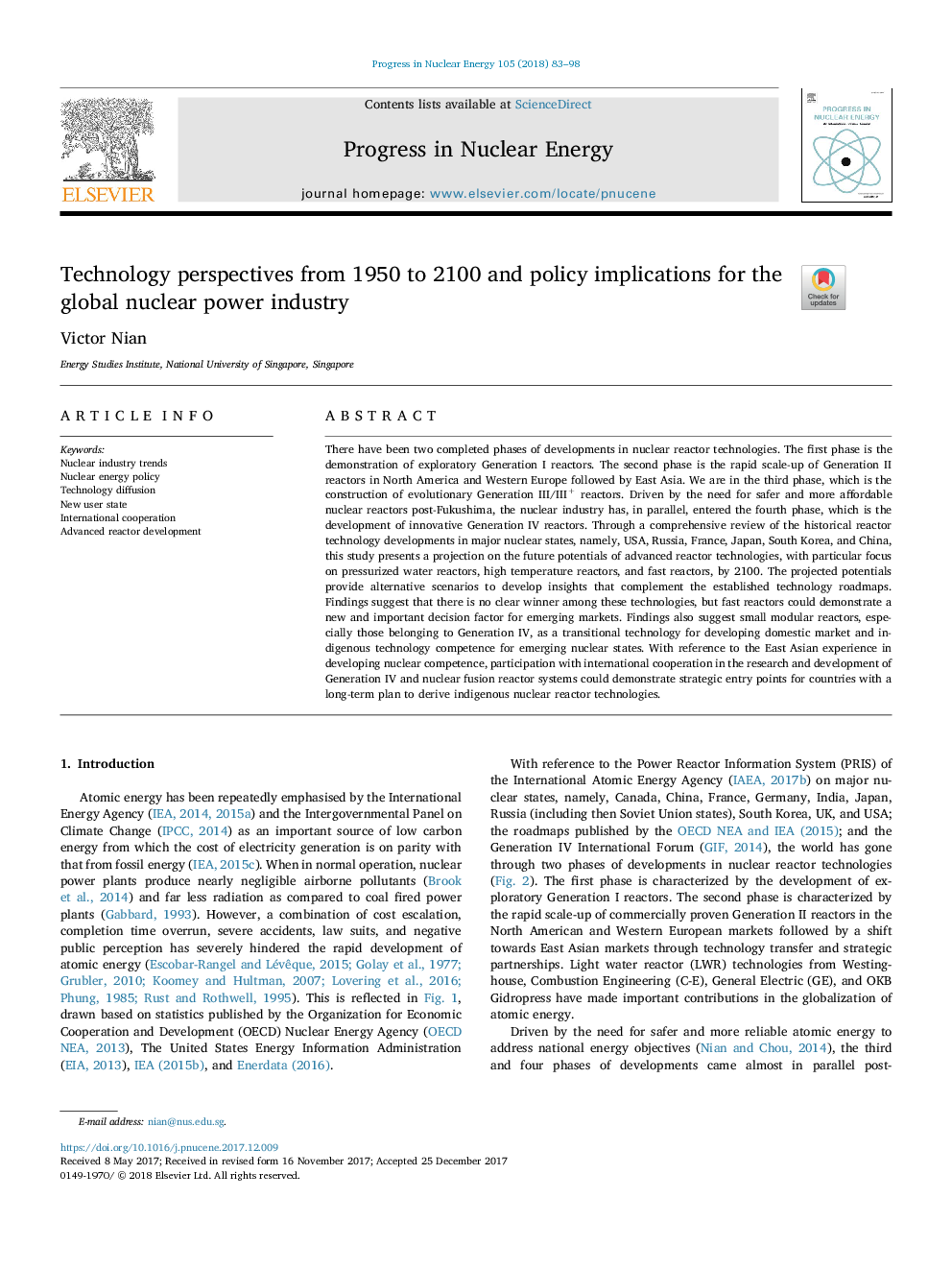ترجمه فارسی عنوان مقاله
دیدگاه های تکنولوژی از سال 1950 تا 2100 و پیامدهای سیاست برای صنعت انرژی هسته ای جهانی
عنوان انگلیسی
Technology perspectives from 1950 to 2100 and policy implications for the global nuclear power industry
| کد مقاله | سال انتشار | تعداد صفحات مقاله انگلیسی |
|---|---|---|
| 86770 | 2018 | 16 صفحه PDF |
منبع

Publisher : Elsevier - Science Direct (الزویر - ساینس دایرکت)
Journal : Progress in Nuclear Energy, Volume 105, May 2018, Pages 83-98
ترجمه کلمات کلیدی
روند صنعت هسته ای، سیاست انرژی هسته ای، انتشار فناوری، حالت کاربر جدید، همکاری بین المللی، توسعه راکتور پیشرفته،
کلمات کلیدی انگلیسی
Nuclear industry trends; Nuclear energy policy; Technology diffusion; New user state; International cooperation; Advanced reactor development;

